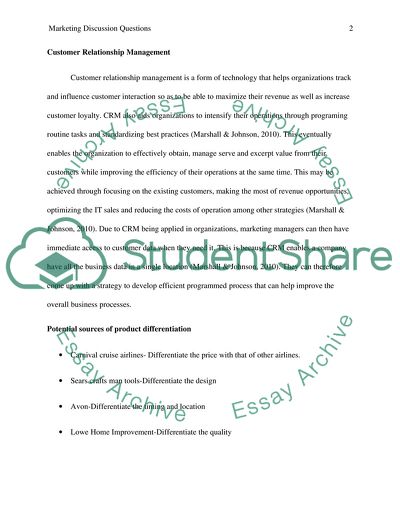Discussion Questions Assignment Example | Topics and Well Written Essays - 750 words. https://studentshare.org/marketing/1815306-discussion-questions
Discussion Questions Assignment Example | Topics and Well Written Essays - 750 Words. https://studentshare.org/marketing/1815306-discussion-questions.


